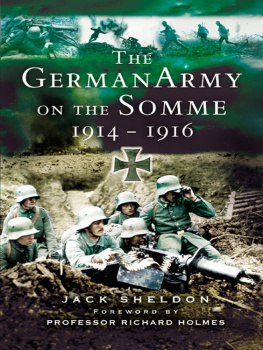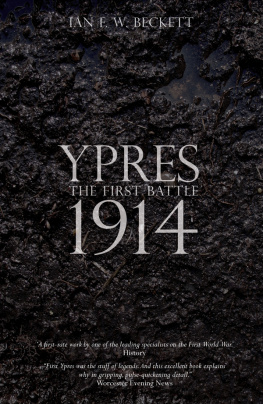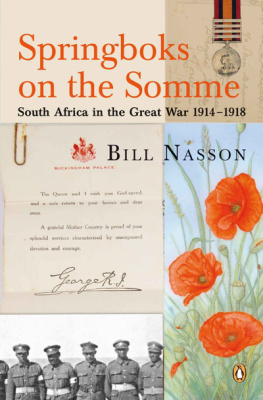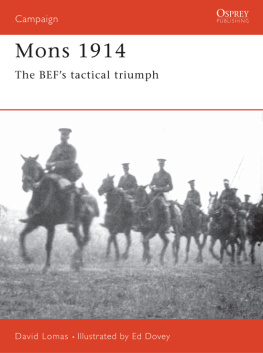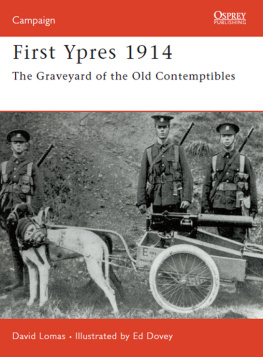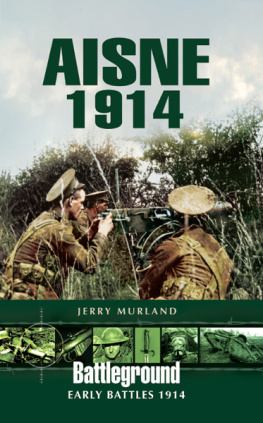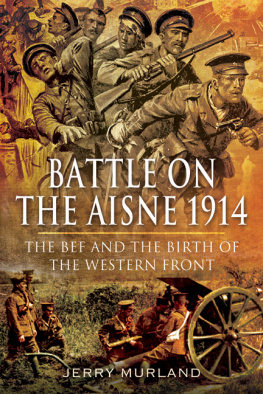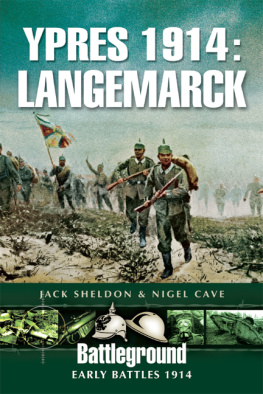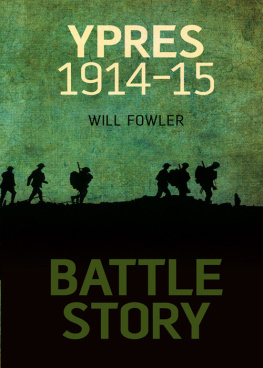
This edition is published by PICKLE PARTNERS PUBLISHINGwww.picklepartnerspublishing.com
To join our mailing list for new titles or for issues with our books picklepublishing@gmail.com
Or on Facebook
Text originally published in 2003 under the same title.
Pickle Partners Publishing 2014, all rights reserved. No part of this publication may be reproduced, stored in a retrieval system or transmitted by any means, electrical, mechanical or otherwise without the written permission of the copyright holder.
Publishers Note
Although in most cases we have retained the Authors original spelling and grammar to authentically reproduce the work of the Author and the original intent of such material, some additional notes and clarifications have been added for the modern readers benefit.
We have also made every effort to include all maps and illustrations of the original edition the limitations of formatting do not allow of including larger maps, we will upload as many of these maps as possible.
THE BATTLE OF TANGA, GERMAN EAST AFRICA 1914
By
Major Kenneth J. Harvey
TABLE OF CONTENTS
Contents
TABLE OF CONTENTS
REQUEST FROM THE PUBLISHER
ABSTRACT
In November 1914, British Indian Expeditionary Force B conducted an amphibious assault on the Port of Tanga in German East Africa. The British possessed all the tools required for success; they outnumbered the defenders almost eight to one, they possessed the only artillery and naval guns available for the battle, and they landed where the Germans were weak. Despite these factors, a hastily organized German defense force of 1,100 soldiers not only defeated the 8,000 British soldiers, but also compelled Indian Expeditionary Force B to retreat to Mombasa.
This thesis examines the manner in which German and British forces were organized, trained, equipped, and led. Additionally, it identifies the critical factors that together led to British defeat at Tanga.
ACRONYMS
AskariAfrican soldiers serving in a colonial army
GEAGerman East Africa
FKGerman Field Company
IEF BIndian Expeditionary Force B
IEF CIndian Expeditionary Force C
ISBImperial Service Brigade
KARKings African Rifles
SchKGerman Field Company with all German Soldiers, no Askari
101 G101st Grenadiers
63 PLI63rd Palmacotta Light Infantry
13 R13th Rajputs
2 KR2nd Kashmir Rifles
3 KR3rd Kashmir Rifles
3 GR3rd Gwalior Infantry
61 KGOP61st King Georges Own Pioneers
98 I98th Infantry
2 LNL2nd Battalion, Loyal North Lancashires
28 MB28th Mountain Battery
CHAPTER 1 INTRODUCTION
Gun crews wrestled their old cannons into position on the oceans edge of German East Africa. With the sun beginning to appear over the Indian Ocean, German gunners raced to fire their guns before it was too late. They worked with the desperation of men who knew this was their last chance to take part in battle. Finally in position, the two crews began to fire their obsolete cannons at the collection of British ships in the port of Tangas harbor. The British ships broke into a frenzy of activity to escape as the shells of the old cannons began splashing around them. As if outraged by the feeble bombardment, the H.M.S. Fox lobbed large six-inch shells into the port city as the British force slowly finished raising anchor and gathered steam to escape the nightmare of Tanga. Chased by waterspouts from the shells of the smoke wreathed, obsolete Model 1873 cannons, Indian Expeditionary Force B left Tanga to the control of Lieutenant Colonel Von Lettow-Vorbeck and his Schutztruppe . {1} The roar of the German cannons marked the end of British plans for a rapid conquest of German East Africa, and the defeat of the 8,000 men of Indian Expeditionary Force B by 1,100 German and native African troops in November 1914 was so shocking that the British government withheld all information from the public for several months. {2} Questions of how the meager forces of Lieutenant Colonel Paul Von Lettow-Vorbeck defeated Major General Richard Aitkens Indian Expeditionary Force B have raged since the last echoes of the ancient German cannons rolled across the ocean toward the fleeing British ships.
Watching the departing British ships, Lieutenant Colonel Von Lettow-Vorbeck also observed his native Askari troops excitedly talk amongst themselves about the unexpected mounds of British equipment captured on the beach. As his officers accounted for the Schutztruppe soldiers and inventoried the captured equipment of Indian Expeditionary Force B, he basked in the glow of desperate decisions that had more than paid off. {3} His troops were swaggering through Tanga with a confidence only the victorious possess. {4}
The mood on the transports of Indian Expeditionary Force B was not the same at all. Major General Aitken reviewed the messages prepared the night before for his various headquarters in India and England. They all began with the words Deeply Regret {5} and then went into the details of the Forces failure to secure Tanga and plans to return to Mombasa. Major General Aitken was faced with the end of his career, but was determined to protect his subordinates by praising their efforts and abilities while accepting full responsibility for the failure at Tanga. {6} Below decks, Captain Richard Meinertzhagen, the Expeditionary Force Intelligence Officer, contemplated the unexpected defeat and tried to understand what had happened. He wondered what the outcome at Tanga would have been with just a few different decisions. Should they have so carelessly turned down British East Africas Kings African Rifles Askari offered in Kenya as scouts? Would they have made a difference? {7} He wondered, having seen the Schutztruppe first hand, how many leaders of Indian Expeditionary Force B still maintained the assumption the Indian colonial troops were superior to African Askari in the wilds of East Africa? The Navy contribution to the land battle increased his despondency; he was recovering from the effects of shellfire courtesy of the Royal Navy. One of the only two shells fired by H.M.S. Fox during the battle had landed close enough to knock him out, {8} but at least he was better off than the troops in the hold. The crowded, fetid holds were packed with Indian troops in shock. Most were amazed that they had survived, loaded onto the miserable ships almost thirty days before in India, none of them ever thought they would be happy to be back aboard, but they were. They struggled through the crowded holds searching for missing companions and friends amidst the cries of the wounded and rejoiced when they found them, but few found reason to rejoice. As bad as the holds were, none of them would hesitate to spend another thirty days cramped aboard these reeking ships if that was the price to escape German East Africa.
Colonial forces in British East Africa and Indian Expeditionary Force B were to be the final blow in a coordinated campaign to end German influence in Africa. The failed invasion of German East Africa was not a learning experience for a young, blundering Empire. The British Empire had long considered German African colonies as potential threats, either directly to British colonies or as havens for German commerce raiders. The British Lion was determined that German warships would have no sanctuary in Africa. {9} The attempted invasion of German East Africa in November 1914 was to be the final act of a campaign designed to conquer all of the German African colonies.





